Progress in quality assurance: evidence-based, public health, human rights, and gender approach for drug use prevention and treatment programmes
Progress made in the framework of COPOLAD II

Twenty-two countries in Latin America and the Caribbean have worked in the framework of COPOLAD II, in the validation of quality criteria for Drug Demand Reduction (DDR) programmes. This validation process, made in real contexts, has focused on prevention and treatment programmes, with the voluntary participation of each participating country, with the leadership of Chile, Costa Rica and Trinidad & Tobago. This exercise has been carried out with the active contribution of 26 prevention programmes and 37 treatment services for problematic drug use. The prevention programmes piloted between 60 and 77 criteria, depending on the reality in each country. Treatment services piloted between 57 and 83 quality criteria according to the basic or advanced level selected in each case.
Most of the participating programmes are public-funded or/and stated-owned, that is, they are managed by the government administration, and all the participating non-governmental services receive public funds. In the case of treatment, there was a balance between outpatient, residential and mixed services, and in prevention, programmes are preferably of a universal level, followed by those that carry out selective prevention. Participating prevention programmes are mainly developed in school settings, with children and adolescents, followed by family and community settings. Treatment services preferably serve the adult population, although some also serve children and adolescents.
In the case of prevention programmes, the pilot testing made it possible to validate that 98% of the quality criteria piloted are applicable in the real context. However, when evaluating their degree of compliance in the current reality, on average, these preventive programmes achieved a degree of compliance of 58%. A great variability was observed among programmes, and three out of four preventive programmes did not exceed 75% compliance with quality criteria. It was observed that only 10% of the programmes currently implemented exceeded 90% compliance.

In the case of treatment programmes, in 93% of the cases where a quality criterion was assessed, it was found that the criterion is applicable in the real context. But again, on average, the treatment programmes meet the piloted criteria by 67%. Only 16% of the piloted programmes achieved a crude compliance of 90%, which would indicate an optimal level of service quality, with a large variability of results among them.
The exercise has also allowed for significant progress in the level of compliance with quality criteria related to the establishment of mechanisms and procedures for collaboration and coordination between different institutions and social organizations; in managing to define inclusion and exclusion criteria that adequately delimit access or lack thereof of people to be treated in the different treatment modalities; in maintaining a register of the people benefiting from the programme; in offering a multi-component therapeutic program of a biopsychosocial nature, which combines pharmacological therapy and psychological-behavioural and cognitive-behavioural treatment, group therapy, family and couples therapy.
At the same time, the validation exercise has made it possible to identify weaknesses that still persist and that constitute real challenges for the countries of Latin America and the Caribbean. Among them, the following stand out: that most centres do not have a quality management system that ensures the provision of the best programme or service available in each case to be treated; they do not consider the gender perspective in the design of the treatment plan; they do not have an ongoing training programme for the permanent updating of the professionals who make up the therapeutic team; they do not ensure the use of evidence-based clinical guidelines or specific protocols applicable to certain relevant treatment processes; they lack a follow-up programme for patients after leaving the treatment service, including the lack of periodic monitoring of relapses, using objective measurement methods.
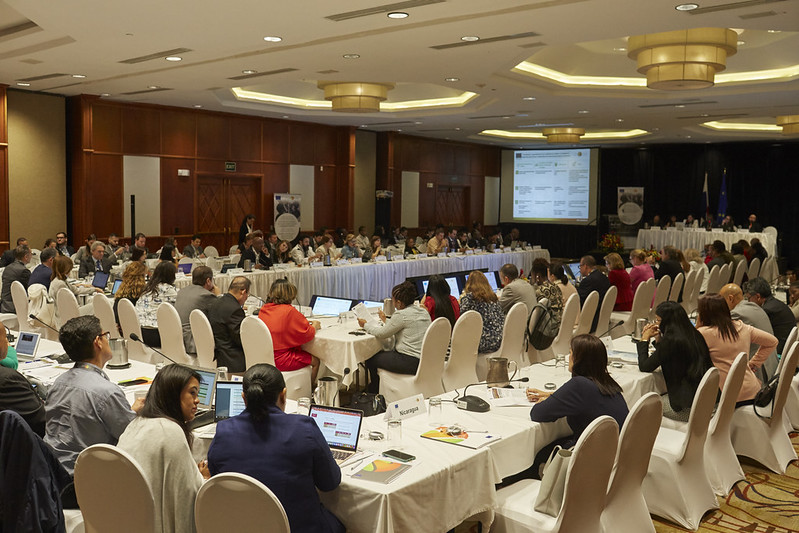
What remains to be done
The work developed in the framework of COPOLAD since 2011, constitutes a valuable basis, which facilitates a coordinated and necessary institutional effort to promote, now more than ever, the development of processes that allow quality assurance and the establishment of regulatory frameworks for accreditation in each country of Latin America and the Caribbean, where quality standards and evidence base can be anchored, both in prevention and assistance of problematic drug use in the region countries.
The quality piloting and validation exercise developed in COPOLAD II has also served to identify urgent challenges to advance in quality assurance of DDR programmes in the region. In a very synthetic way, it can be considered that, from now on, efforts should be focused on: Promoting legal and regulatory frameworks conducive to the development of national quality assurance systems that include specific standards for accrediting DDR programmes, so that countries can protect the right to health, including in the area of addiction; strengthen the institutional capacities needed to articulate coordination between drug commissions or agencies and the Ministries of Health, including the bodies authorized to accredit the health system, so that they can expand their actions to include DDR programmes; prioritize the quality strategy in national drug plans, institutional strategic plans, and maintain periodic self-evaluation exercises of COPOLAD's quality criteria already validated in the real contexts of Latin America and the Caribbean.
Within this framework, and in order to continue supporting countries in these developments, COPOLAD II will continue to provide technical assistance to those countries that have requested it, until its closure in June this year.
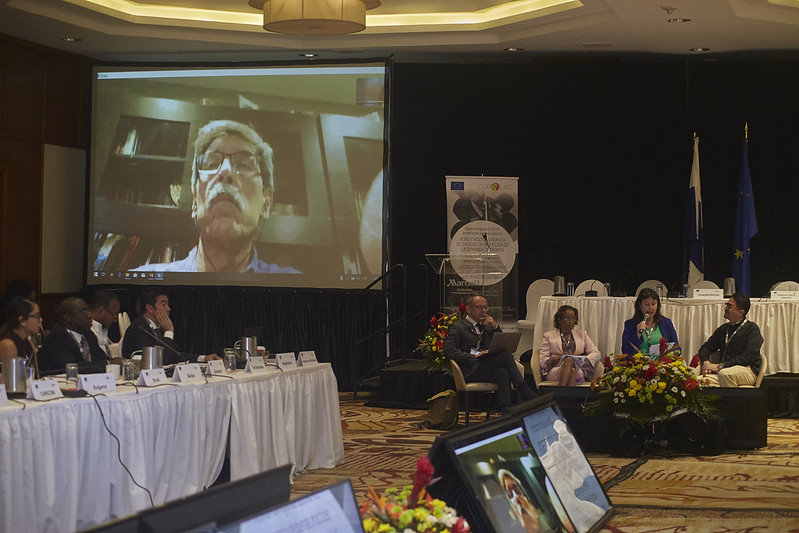
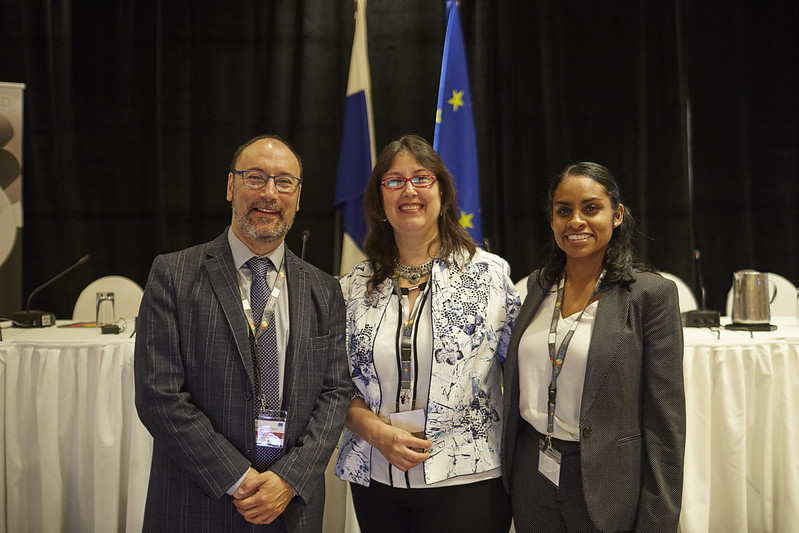
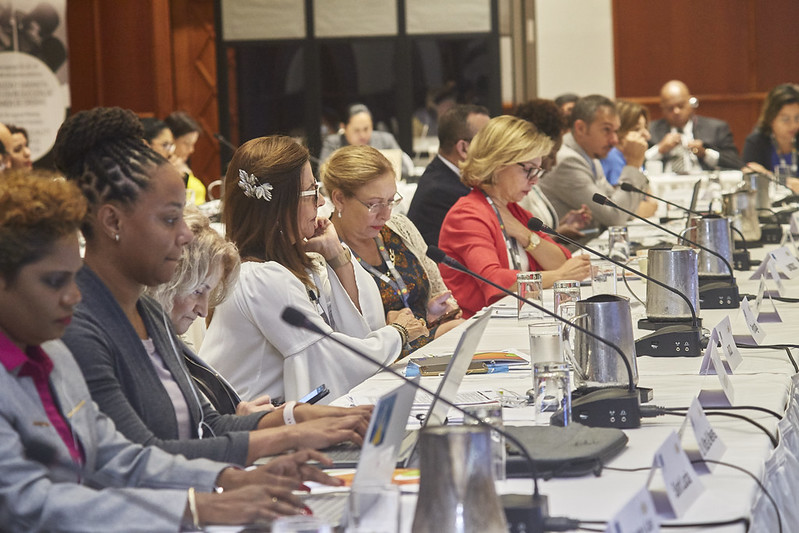
A bi-regional forum closes this validation phase in Panama and allows the following steps to be outlined
Convened in collaboration with the Ministry of Foreign Affairs of Panama, the Ministry of Health and the Panamanian Public Ministry through the National Commission for the Study and Prevention of Drug-Related Crime (CONAPRED), the 3rd COPOLAD Bi-regional Meeting for the Exchange of Best Practices between Latin American and Caribbean Countries and the European Union was held in Panama (Panama, November 27-28, 2019).
Thanks to the very high institutional participation, the meeting provided an excellent space to present the results of the validation exercise carried out in the framework of COPOLAD II, allowing, in addition, to review the progress achieved so far in the field of quality in DDR by Latin American and Caribbean countries and those of the European Union. Given the importance of inter-institutional coordination for the establishment of stable quality assurance frameworks, in addition to the Agencies responsible for national policies, they also participated in the meeting: responsible for the Health Services Accreditation Agency in each country; representatives of the countries in the Technical Committee and High Level Meetings of the EU-CELAC Coordination and Cooperation Mechanism on Drugs; responsible for drug policies in the Ministry of Foreign Affairs of these countries; representatives of the multilateral institutions that collaborate with COPOLAD, such as EMCDDA, CICAD/OAS and PAHO/WHO; the bi-regional civil society networks that collaborate with COPOLAD (RIOD and IDPC); as well as other relevant actors that work in the field of quality assurance in the DDR area, such as CARICOM, UNODC and the Colombo Plan for Latin America and the Caribbean, with which COPOLAD II has been strengthening coordination, establishing synergies and preventing duplication.
This forum also made it possible to jointly explore the main challenges faced by the various institutions that play a key role in planning and implementing quality policy in DDR, in order to optimize their efforts in a coordinated manner, so as to move toward robust legal frameworks for quality assurance of prevention programmes and care services in drug dependence.
Last but not least, in this meeting, the Latin American and Caribbean countries were able to present not only the efforts made so far, but also their future plans and the next steps through which they intend to strengthen national policies for accreditation and quality assurance in their prevention programmes and their services and care programmes. This is a major step forward, and from COPOLAD, we want to thank all this work developed by 22 countries in the region, their high involvement, dedication and determined enthusiasm.
Finally, and as mentioned in the previous point, all the countries that have requested support to continue advancing towards the definition of a legal framework for quality assurance will receive technical assistance from us until the end of COPOLAD II in June of this year 2020.
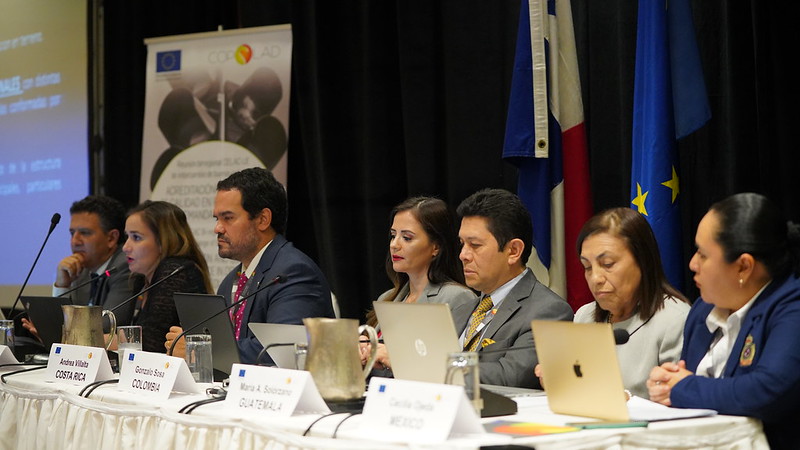
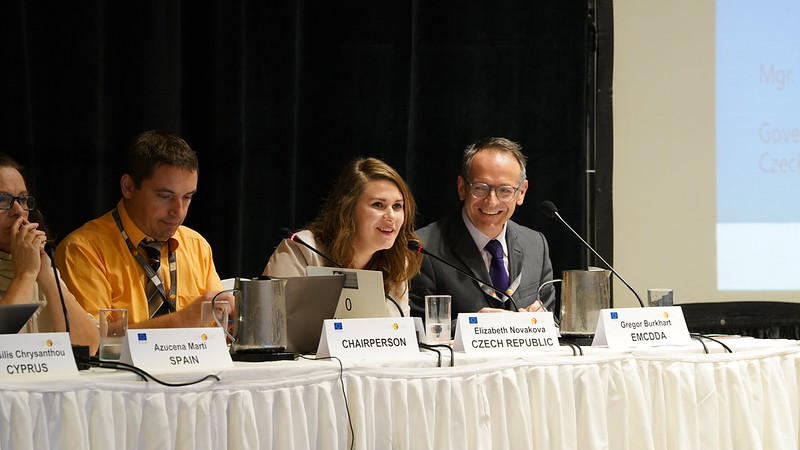
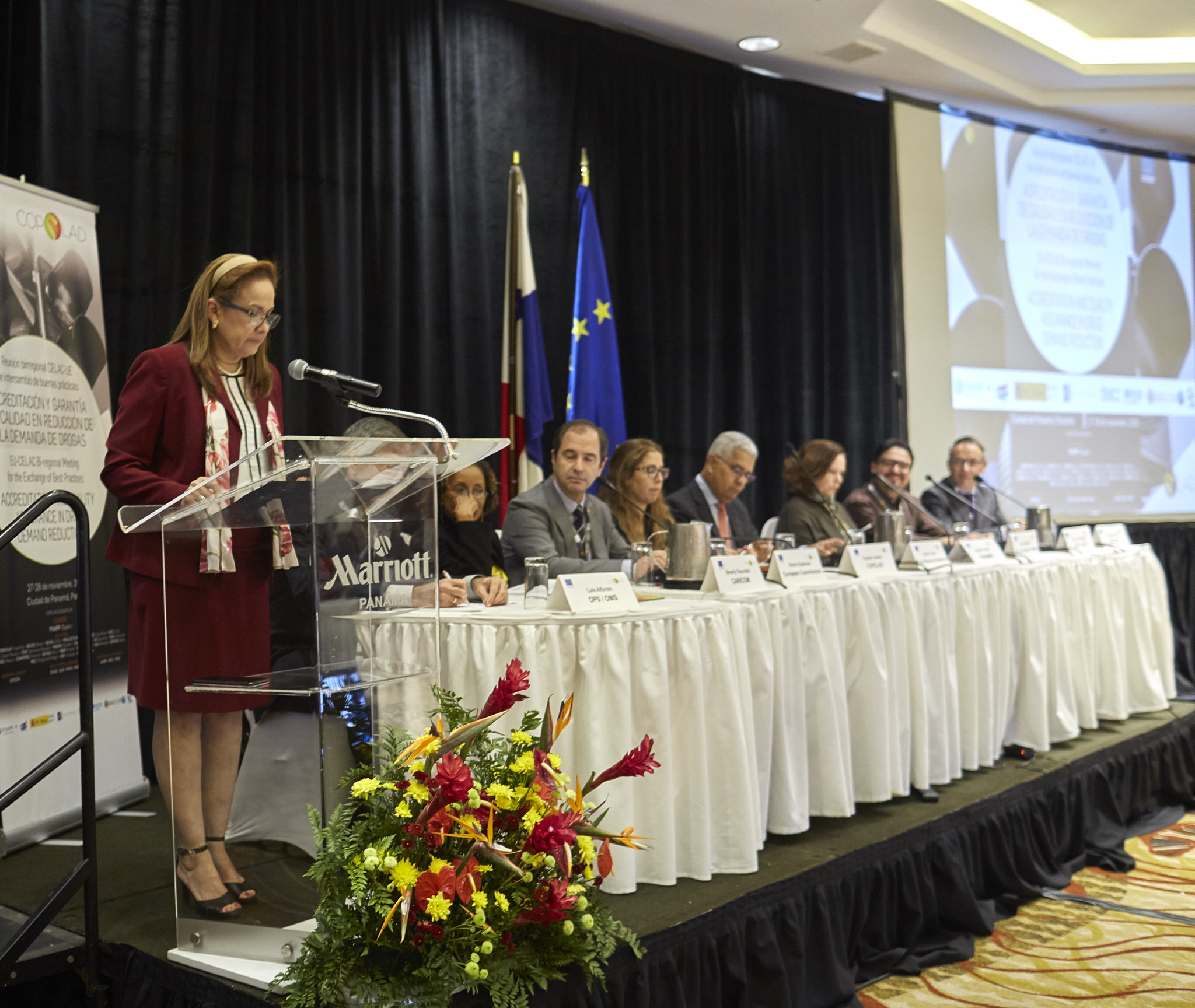
Capacity-building in tool onestep@atime
COPOLAD addresses most of its work on promoting capacity building in the Latin American and the Caribbean countries in key areas of drug policies, according to available evidence. In line with this approach, appropriate planning and evaluation of interventions has to be regarded as a key element to improve the effectiveness of policies and programmes.
The use of the Logical Planning Model facilitates the implementation of an orderly and systematic intervention, and this model is used as the basis for the planning tool “OneStep@ATime”. This instrument guides the process of designing and evaluating a particular intervention, facilitates access to quality information, contains working protocols, provides tools for sharing documentation with other professional teams, and facilitates analysing the quality of the intervention planning.
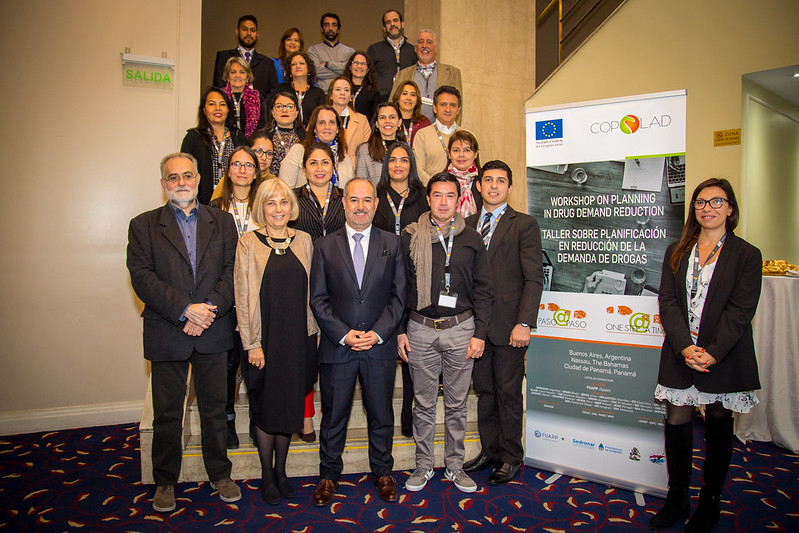
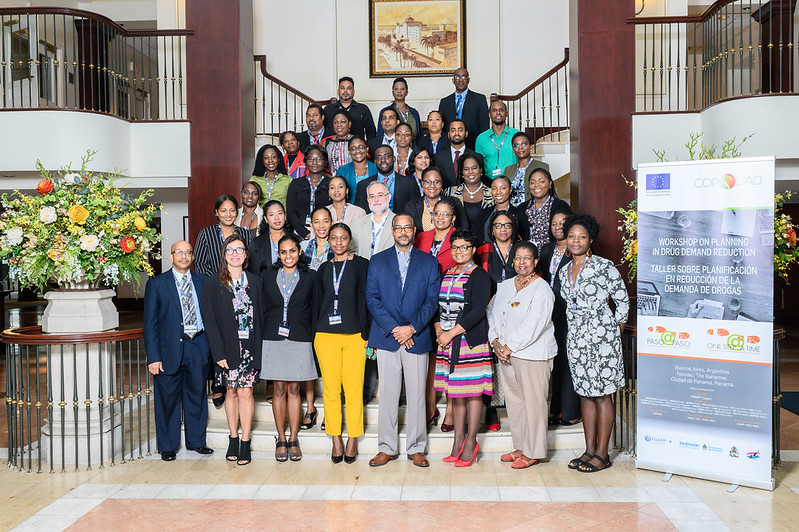
The tool has been introduced to the CELAC countries throughout three sub-regional workshops held during the second semester of 2019. Professionals from the National Observatories, together with responsible planners in the field of Drug Demand Reduction of the National Drug Agencies from the Southern Cone and Andean countries, were invited in August 2019 to Buenos Aires to learn first-hand about this virtual tool. And following the scheduled agenda, in October and November, the second and third editions of the workshop were held in The Bahamas (15-16 October, in Nassau) and in Panama (25-26 November, in Panama City). In all editions, participating professionals assessed “OneStep@ATime” as an instrument to support their daily work.
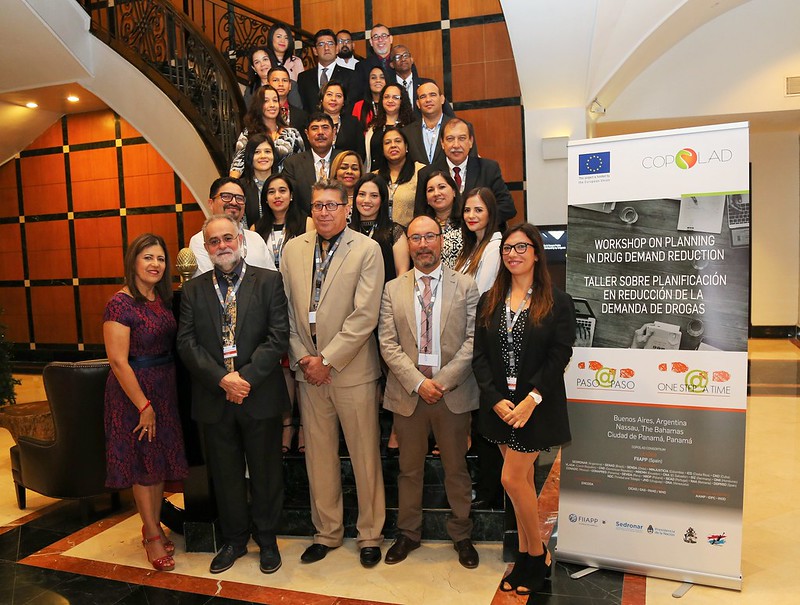
As detailed in our last Newsletter, the first workshop in Argentina was held in cooperation with SEDRONAR, while the training at The Bahamas was organised in collaboration with the National Anti-Drug Secretariat (NADS) and the valuable cooperation of its Director, Dr. Terrance Fountain, and addressed to thirty-five Caribbean professionals from Antigua & Barbuda, Barbados, Belize, Dominica, Grenada, Guyana, Haiti, Jamaica, Saint Lucia, Saint Vincent and the Grenadines, St. Kitts and Nevis, Suriname and Trinidad and Tobago. Delegates from Bahamian institutions from other Ministries and public health services, along with the NADS, attended the meeting. The training in Panama was organised in cooperation with the National Commission for the Study and Prevention of Drug-Related Crimes (Comisión Nacional para el Estudio y Prevención de los Delitos Relacionados con las Drogas, CONAPRED), led by its National Secretary-General, Dr. Abraham Herrera. About thirty professionals were trained on this occasion, from Costa Rica, Cuba, Guatemala, Honduras, Mexico, Nicaragua, Dominican Republic and the hosting country, Panama. A wide scope of local institutions and organizations, from the public sector, civil society, as well as universities from Panama, participated in this edition of "OneStep@ATime”.
By the end of 2019, with this series of capacitation workshops, more than a hundred professionals had been trained to use the tool, using practical exercises. The workshops were led by the team which has developed the instrument, Promoció i Desenvolupament Social (PDS). “OneStep@ATime” has been received with enthusiasm by the participating countries, which are beginning to use this tool to develop more effective drug demand reduction programs based on scientific evidence. Because of those positive assessments, national replicas of the workshop were already held in Jamaica, Peru, Suriname, and Venezuela in 2019, some of them are being developed in The Bahamas and again in Jamaica in 2020 and new editions are foreseen in other countries.
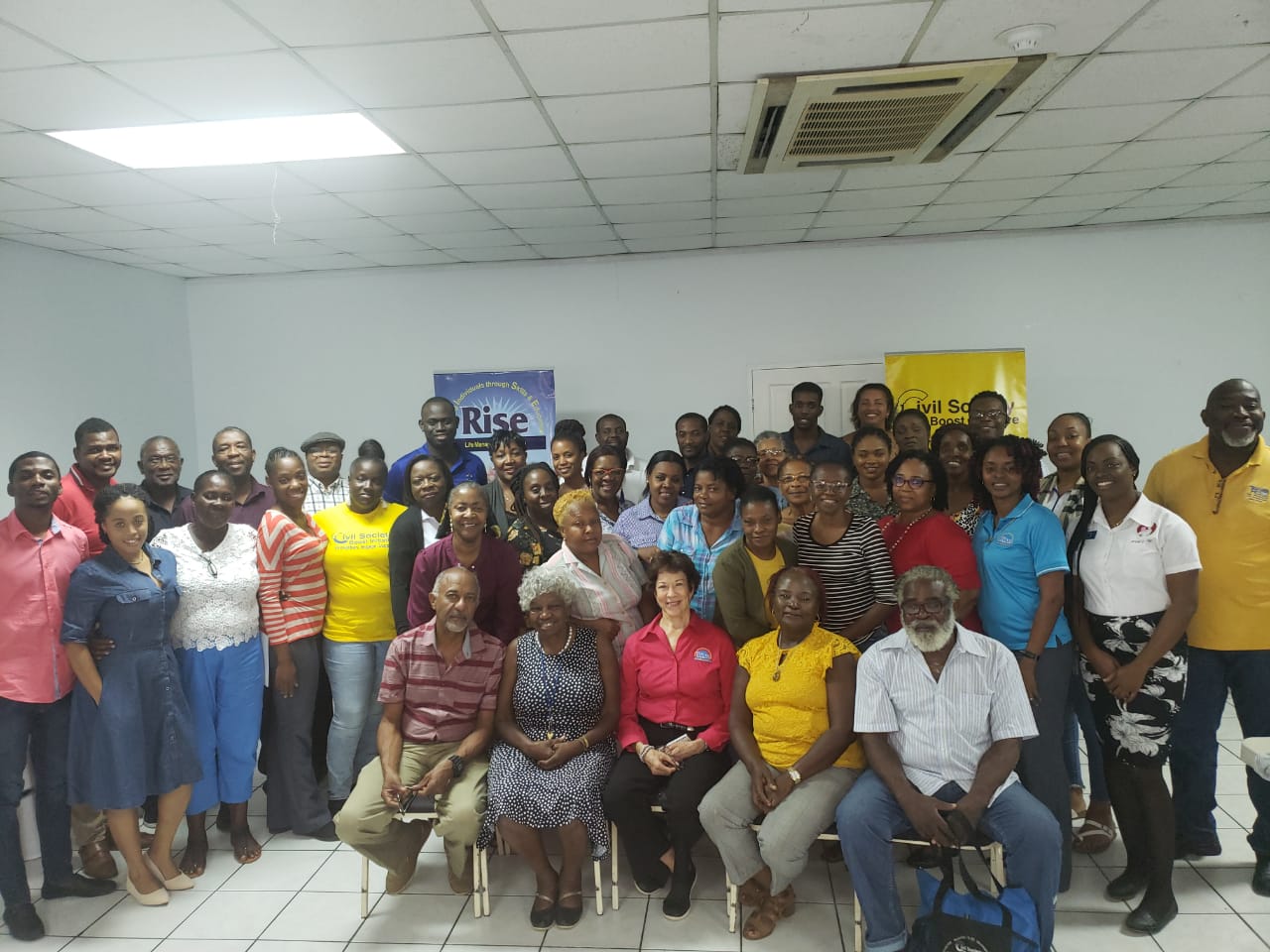
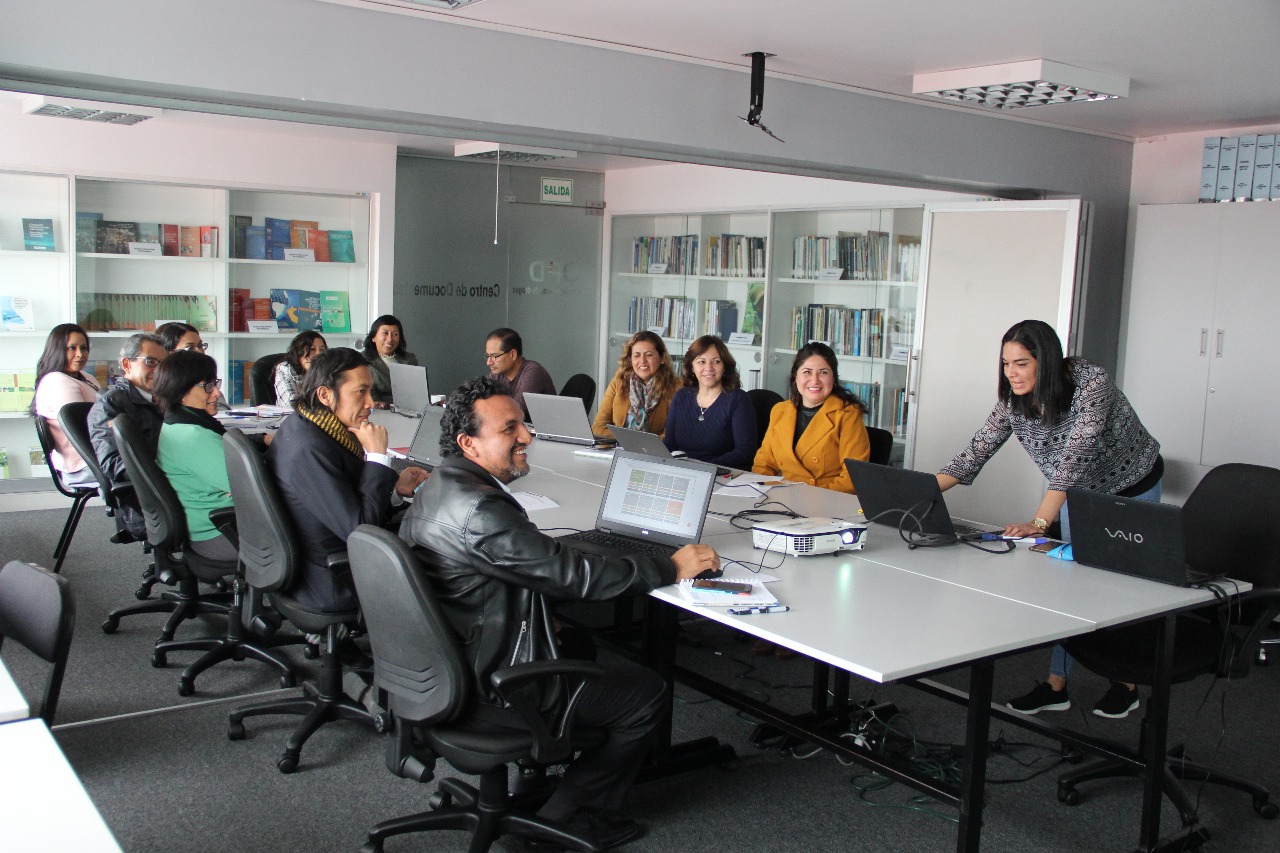
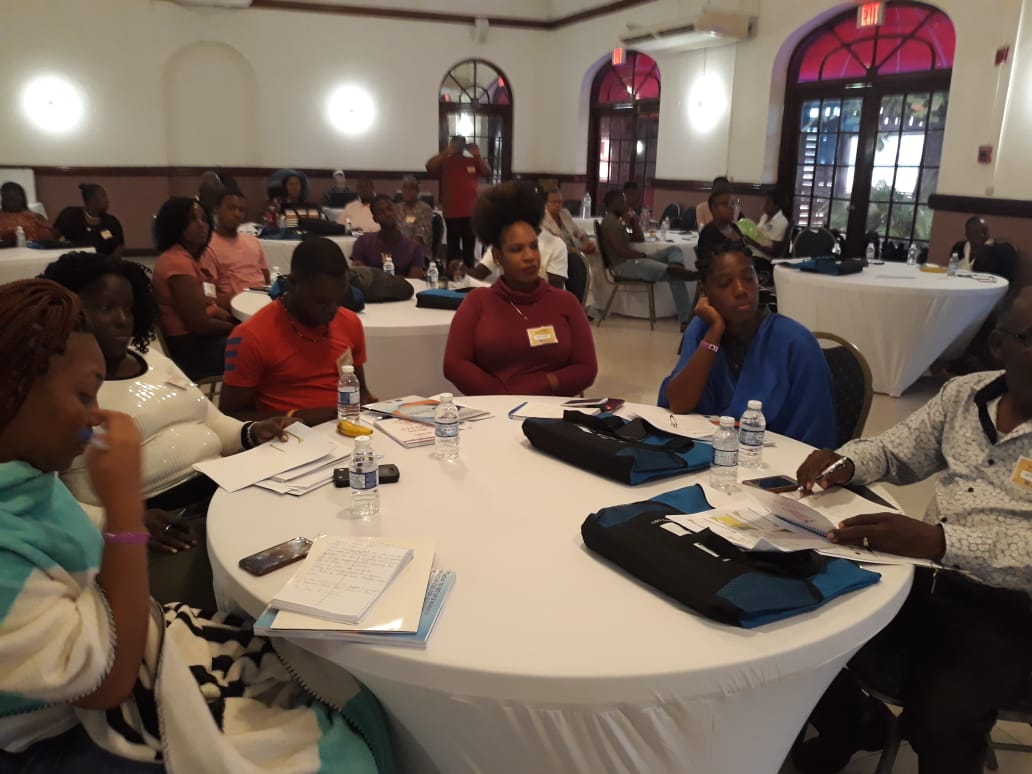
Outcome of the COPOLAD's capacity-building strategy
One of the objectives of COPOLAD II was to expand the scope of the training strategy in Drug Demand Reduction (DDR), already started in the first phase of the programme (2011-2015), in which two online training courses were developed: The use of alcohol and other drugs: Evidence-based prevention and Comprehensive and Integrated Drug Related Socio-Sanitary System at the Primary Care. The goal set at the beginning of this new period (2015-2020) was to increase both, the number of courses offered and their coverage. We are pleased to announce that this objective has been significantly increased by the end of 2019.
Adding to the two courses already available in COPOLAD I, another two have been developed in COPOLAD II: Public Health Approach in Drug Policies and Comprehensive Approach to the Prevention and Reduction of Adverse Consequences of Drug Use in Highly Vulnerable Populations: A Public Health Strategy. All courses were designed and implemented in collaboration with the Pan American Health Organization (PAHO/WHO) and the Inter-American Drug Abuse Control Commission (CICAD/OAS). In preparing the two recent ones, experts from Latin America and the Caribbean were also brought in. All courses are available in English and Spanish.

During this second phase (2016- 2019), eight international editions of the courses have been developed, four editions in Spanish for the Latin American countries, and four in English for the Caribbean countries. And they have been implemented under the leadership of countries of both regions. A total of 478 students from 30 Latin American and Caribbean countries have attended these courses, achieving a pass rate of over 60%.
Thanks to the positive evaluation of participants and the high demand generated, several national editions of all the courses have also been held, increasing the number of professionals trained in various countries. By the end of 2019, fifteen national editions have been held in seven countries: Argentina, Bolivia, Chile, Guatemala, Jamaica, Peru and Venezuela; additionally, other countries such as Ecuador are already in the implementation phase of their national editions and Mexico will soon begin their own.

Globally, more than 1,800 professionals working in problematic drug use prevention and treatment have been successfully trained during the last four years. This multiples by 10, the training offered during COPOLAD II, compared with the first phase of the programme (a 900% increase), significantly exceeding the initial expected goal for its second phase: “to reach an increment of trained professionals by 50 %”.
Through this sustainable training strategy, the professional response in Latin American and Caribbean countries has been strengthened in key areas, where involved institutions in this field are facing high turnover rates, very frequently. It also confirms the sustainability, accessibility and broad scope of the capacity building strategy promoted by COPOLAD since its first phase and its sustainability beyond the end of COPOLAD II.

